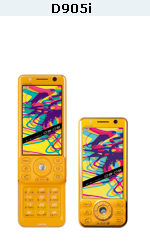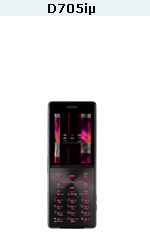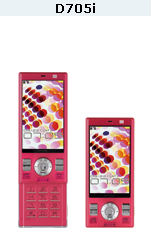Mitsubishi's decision represents the difficulties faced by smaller mobile manufacturers who find are finding it difficult to compete in a cut throat market. The companies with smaller market shares (Mitsubishi projected 2.1 million handset sales this year) are unable match the economies of scales generated by the larger manufacturers either in production or in research and development. Mitsubishi also faces the problem that Japan (its only market for mobile phone) is a mature market which is unlikely to see handset sales growth in the future. Indeed DoCoMo has sought to decrease handset sales by reducing subsidies and decreasing line rental to discourage customers from frequently upgrading their handsets.
Mitsubishi's recent MOAP-S phones include the D905i, D705iμ and D705i (shown below).



In total Mitsubishi has produced 17 Symbian ohones over the years: FOMA D905i, FOMA D704i, FOMA D904i, FOMA D903iTV, FOMA D800iDS, FOMA D703i, FOMA D903i, FOMA D702iF, FOMA D702iBCL, FOMA D902iS, MUSIC PORTER X, FOMA D702i, Music Porter II, Raku-Raku PHONE Simple, FOMA D902i, FOMA D701i, FOMA D901iS, and FOMA D901i. Several of these phones, such as the D800iDS, Music Porter X and Raku Raku Simple stand out in the memory as being innovative or different.
Mitsubishi's move leaves Sharp, Sony Ericcson and Fujitsu as the makers of MOAP-S phones. Some Nokia S60 devices also shop on NTT DoCoMo's network. MOAP-S is the market leading software platform in Japan having seen significant growth against MOAP-L (MOAP on Linux) in the last 18 months.
